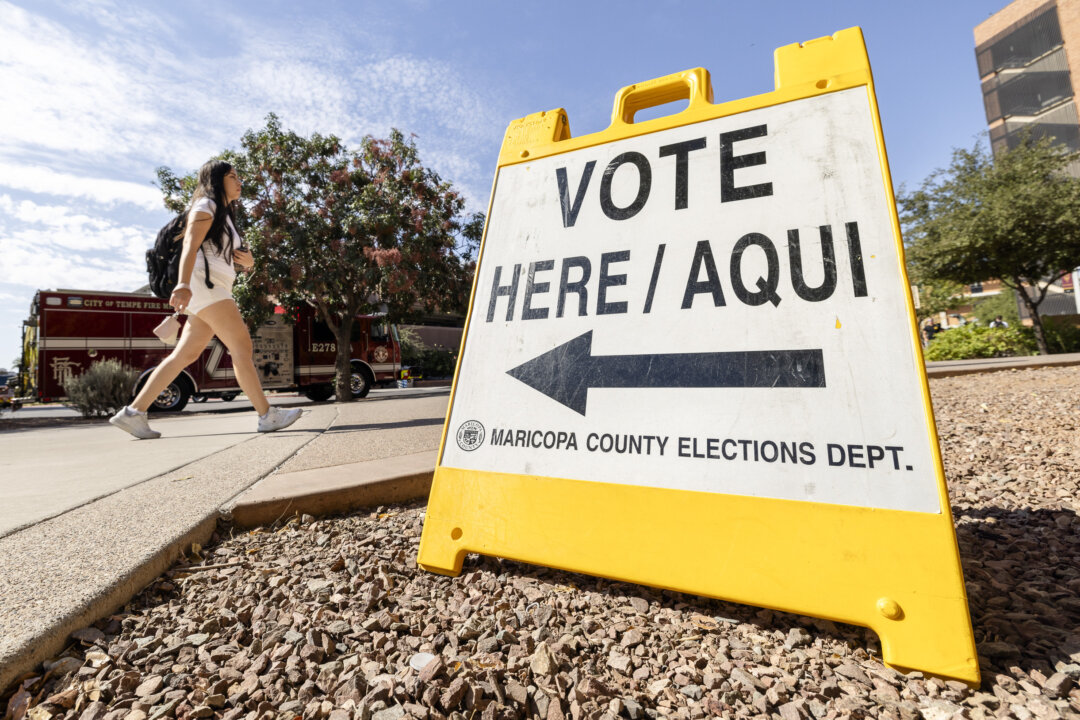The Justice Department had sued the state, alleging that it violated a federal law prohibiting systematic changes 90 days before an election.
A federal judge on Oct. 16 ordered Alabama’s secretary of state to halt its effort to inactivate and move toward removing noncitizens from its voter rolls because doing so violated a federal prohibition on systematic changes 90 days prior to an election.
“For decades, federal law has given states a hard deadline to complete systematic purges of ineligible persons from voter rolls: no later than ninety days before a federal election,” Judge Anna Manasco of the Northern District of Alabama wrote in her preliminary injunction.
“This year, Alabama Secretary of State Wes Allen … blew the deadline when he announced a purge program to begin eighty-four days before the 2024 general election.”
Her order also requires Allen to issue guidance to each of the state’s 67 counties for them to restore the status of individuals inactivated as part of the program as well as provide a remedial mailing to those individuals.
The U.S. Justice Department (DOJ) sued Alabama in September, alleging that the state violated the 90-day Quiet Period Provision included in the National Voter Registration Act (NVRA).
Allen had announced on Aug. 13 that the state had “identified 3,251 individuals who are registered to vote in Alabama who have been issued noncitizen identification numbers by the Department of Homeland Security.” He would direct counties to “inactivate and initiate steps necessary to remove all individuals who are not United States citizens.”
In her order, Manasco said Allen “later admitted that his purge list included thousands of United States citizens.”
The district court had consolidated the Justice Department’s case with another lawsuit filed by a group of organizations that included the Alabama Coalition for Immigrant Justice, League of Women Voters, and others.
Alabama Attorney General Steve Marshall filed a motion to dismiss, claiming on Oct. 2 that the organizations lacked standing, the legal concept that a party is sufficiently harmed to bring a complaint under Article III of the Constitution.
It also argued that both groups of plaintiffs misinterpreted the NVRA.
Passed in 1993, the NVRA reads in part: “A state shall complete, not later than 90 days prior to the date of a primary or general election for federal office, any program the purpose of which is to systematically remove the names of ineligible voters from the official lists of eligible voters.”
Marshall’s motion argued, among other things, that removal was a “term of art,” which only occurs after eligible voters no longer appear on the official lists of eligible voters.
Allen’s letters, Marshall said, merely directed inactivation and that inactive status didn’t constitute removal under state or federal law. “Secretary Allen’s noncitizen letter process does not call for administrative removal of anyone from the voter rolls before the 2024 General Election,” the motion reads.
The DOJ responded on Oct. 9 by telling the court that Alabama was ignoring the plain text of the NVRA, which encompassed programs whose purpose was systemic removal—regardless of whether that removal would occur 90 days prior to an election.
In its complaint against Alabama, the DOJ alleged that voters within the state faced potential disenfranchisement.
“While more than 700 individuals impacted by the program have since re-registered and returned to active status in the state’s voter registration records, potentially several hundred or even thousands more registered, eligible voters from the list—U.S. citizens—remain in inactive status, stand to be harmed, and risk disenfranchisement just weeks before the upcoming federal election,” its Sept. 27 complaint read.
A series of lawsuits have been filed across the country in the lead-up to the 2024 elections. The Republican National Committee has ramped up its election integrity efforts compared with prior years and told The Epoch Times it is involved in more than 130 lawsuits across 26 states.
Democrats have also brought complaints, and on Oct. 11, the DOJ said it is suing Virginia over the same NVRA provision it alleged Alabama violated.

